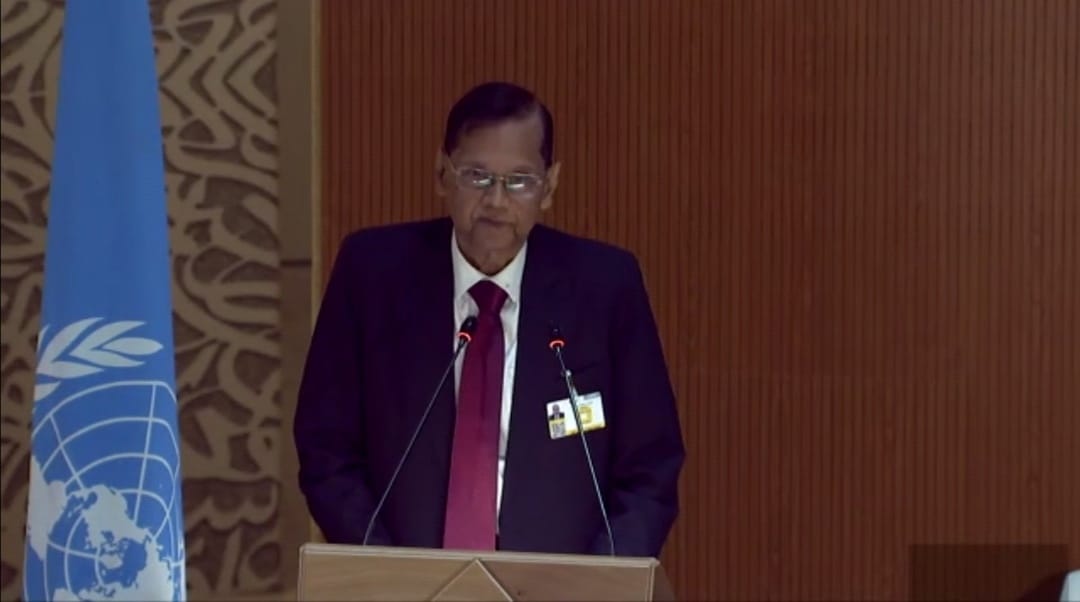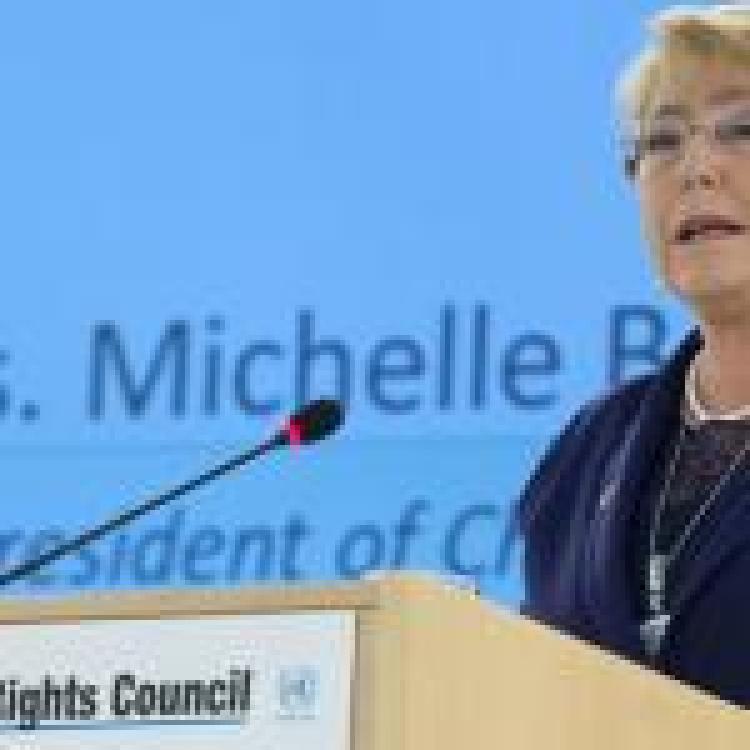
Sri Lankan Foreign Minister G.L. Peiris claimed that UN resolution 46/1 creates "disharmony" and is "unhelpful" to Sri Lanka in his address to the United Nations Human Rights Council (UNHRC) this morning.
Commenting on Resolution 46/1 which was passed last year, Peiris said:
“Such initiatives create disharmony both in the domestic and international arenas. It creates obstacles to reconciliation efforts, breeds hatred by reopening past wounds, and polarises society,” Peiris said.
“[...] the evidence gathering mechanism established under OP 6 of resolution 46/1 is unhelpful to the people of Sri Lanka, will polarise Sri Lankan society, and adversely affect economic development, peace and harmony at a challenging time,” Peiris added.
At the 46th session of the UNHRC, a resolution was passed calling on the Office of the High Commissioner for Human Rights (OHCHR) to "collect" as well as "consolidate, analyse and preserve” evidence that could be used in future war crimes trials.
“It is an unproductive drain on Member State resources, at a time of severe financial shortfalls across the entire multilateral system including the High Commissioner's Office,” he claimed.
Tamil victim survviors, civil society and parliamentarians have criticised the resolution for stagnating accountability at the UNHRC and for failing to implement UN High Commissioner, Michelle Bachelet's recommendations which called on member states to consider asset freezes and travel bans on Sri Lankan officials credibly accused of human rights abuses and to consider “steps towards the referral of the situation in Sri Lanka to the International Criminal Court (ICC)."
In his speech, Peiris also commented on the “initial step” taken by Sri Lanka to ‘reform’ the draconian Prevention of Terrorism Act (PTA) which has been disproprtionately used to arbitrarily detain Tamils and Muslims for long periods of time without charge.
“Sri Lanka is convinced that counter-terrorism legislation must secure and protect the rights of persons subject to investigation detention and trial, and must not restrict democratic freedoms such as the freedom of expression,” Peiris told the Council.
Last week, Bachelet released a damning report highlighting that Sri Lanka's proposed amendments still “do not comply fully with Sri Lanka’s international human rights obligations and leave intact some of the most problematic provisions of the PTA" and called on the authorities to apply a moratorium on its use until it is replaced by legislation that fully complies with international standards.
Sri Lanka has repeatedly rejected the idea of an international accountability mechanism, claiming that domestic processes are in place. However, over a decade has passed since the end of the armed conflict and the government have failed to deliver on any of their promises.
Read the full speech here.

